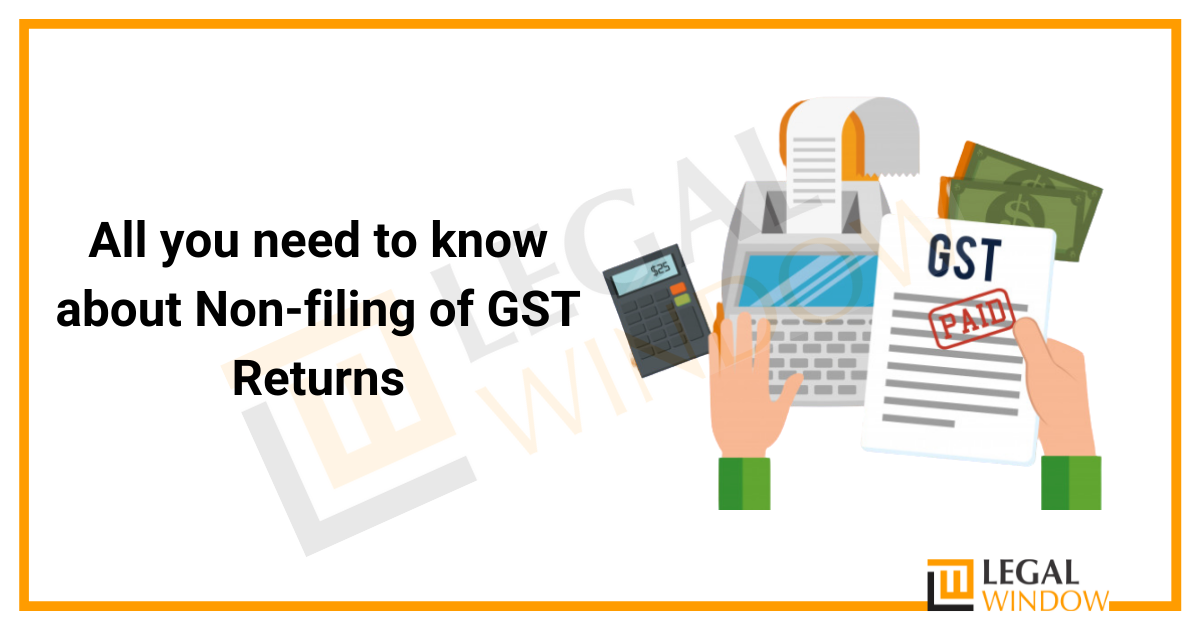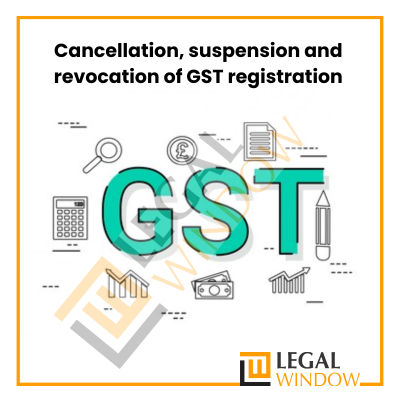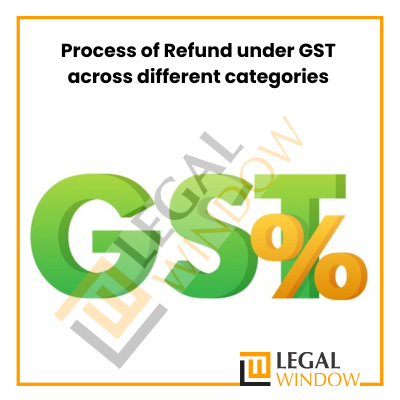
GSTR 3B is a Return that must be completed by a Regular GST Taxpayer. It includes a summary of the outward supplies made as well as the details of the Input Tax Credit. Normally, the due date for filling out GSTR 3B is the 20th of the following month, but the government has the authority to extend the deadline. But, the non-filing of such GST return attracts certain consequences.
| Table of Contents |
Understanding GST and GST Return
On March 29, 2017, the Indian government passed the Goods and Services Tax Act, which went into effect on July 1, 2017. The Goods and Services Tax (GST) is a national indirect tax law that applies to all goods and services.
The Goods and Services Tax (GST) is a tax on both goods and services. It is an indirect tax that has largely replaced other indirect taxes in India, such as VAT, Service tax, Excise duty, and so on. This will facilitate tax collection, reduce double taxation, and improve process efficiency.
Tax evaders must face harsh penalties in order for the indirect taxation law, known as GST, to be implemented effectively. The government of India has established three key strategies to encourage people to comply with the GST regime: interest & monetary penalties, recovery, and suspension of GSTIN. As a result, failure to file the GST return results in penalties and prosecution.
Consequences of non-filing of GST Return
- Late Fees in accordance with Section 47 of the CGST Act, 2017 – Starts immediately following the due date: The first consequence of failing to file GSTR 3B is late fees. The late fees will increase on a daily basis until they reach the capping limit. The fee will be automatically added to the following month’s GSTR 3B. Furthermore, you cannot edit it or file the return until you have paid the late fees.
Currently, the maximum late fee for GSTR 3B from July 2017 to April 2021 is Rs. 500 if you do not have any Tax Liability and Rs. 1,000 if you do have Tax Liability. However, this special waiver is only available if the taxpayer files the pending returns on or before August 31, 2021. Failure to complete the GSTR 3B has a cascading effect. The late fee will continue to rise until it reaches the capping limit.
- Section 50 Interest – Begins Immediately following the due date: If a taxpayer is required to pay tax within a certain time frame but fails to do so, interest at the rate of 18% will be levied. Only if the taxpayer uses the cash ledger balance to pay taxes will be charged interest. In other words, if a taxpayer has enough input tax credit and does not pay taxes using net banking/challan/balance already added to the cash ledger, he will not be charged interest. In the case of interest, there is no concept of maximum capping. Thus, if GSTR 3B is not filed, interest will be charged in addition to the Rs. 4,600 late fee.
- Limiting the Generation of E-Waybills In accordance with Rule 138E- If two consecutive GSTR 3Bs are not filled, the following restriction will apply: If a person has not filed returns for two consecutive tax periods, the generation of E-Way Bills for all types of outward supplies by that person will be restricted. The restrictions will be lifted once the GST Returns are completed. E-waybill restrictions will result in the restriction of outward supplies valued at more than 50,000 outside the state; and inward supplies of specified value as notified by the State Government within the state.
Thus, the company’s E-Waybill Generation would be restricted for failing to file December and January returns. - Punishment Section 122(1)(iii) – Levy after 3 months from the due date: GST includes penalty provisions for certain specific offences. One of these offences is failing to pay the collected tax amount within three months of the due date. The penalty will be equal to the amount of tax collected, with a minimum of Rs. 20,000. As an extension of the preceding example, the due date for paying tax collected in the month of December is the 20th of January. If an individual does not pay his taxes by the 20th of April, along with the late fees and interest, he will be fined.
- Suspension of GST Registration and subsequent cancellation under Section 29(2) – Can be started after 6 months of the due date: If a regular taxpayer fails to file a return for six months in a row, the GST Officer may cancel the person’s GST registration. Before cancelling the GST registration, the officer will issue a Notice requesting clarification from such person, and that person must respond within 7 working days, providing reasons to the officer for not cancelling the GST registration. Although officers are not required to initiate the cancellation procedure immediately after the non-filing of the sixth consecutive month’s return, if officers choose to initiate the procedure of your GST Registration cancellation, the GSTIN will be suspended. The registered person cannot supply any Taxable Goods until the suspension is lifted. As a result, the business will suffer.
- Section 79-Recovery Proceedings: This is the most severe penalty for failing to complete GSTR 3B. Many reminders and notices must be served before the recovery process can begin. The sequence of reminders and procedures is as follows:
- First Reminder – 3 Days Before Due Date to encourage taxpayers to file returns on or before the due date.
- Second Reminder – Immediately after the due date to notify that the return was not completed on the due date.
- Notice – 5 days after the due date, a notice in Form GSTR 3A is issued, requiring the individual to file returns within 15 days.
- Order – Anytime after the 15-day period following the service of notice in form GSTR 3A, provided the return is not filled. Officer may proceed with the evaluation. The officer will compute the tax liability to the best of his or her ability.
It is worth noting that officers may proceed with the assessment. The word “may” refers to the fact that officers are not required to compute the tax payable exactly on the 15th day after serving the notice in GSTR 3A. Officers may proceed on any day after the 15-day period has expired. As a result, the precise time of initiation of recovery cannot be quantified.
- The final consequence is a restriction on recipients’ Input Tax Credit: Payment of tax to the government by the supplier on supplies for which the recipient is claiming Input Tax Credit is one of the main conditions for claiming Input Tax Credit. If the GSTR 3B is not completed, it is assumed that the supplier has not yet paid the taxes to the government (there are exceptions, such as taxes can be paid in GSTR 9 or Form DRC 03). However, the majority of businesses pay their taxes using GSTR 3B). This is the most overlooked and contentious consequence of failing to complete GSTR 3B because there is no tool available to the recipient to verify whether or not the taxes on a specific inward supply are paid to the government by the supplier.
Conclusion
In India, depending on the nature of the business, all GST registered dealers must file their GST returns on a monthly, quarterly, or annual basis. A GST return is a document that contains information about outbound and inbound supplies that a registered taxpayer must file with the Indian tax authorities. If the GST Return is not filed on time, the taxpayer is charged a late fee and interest.
CA Pulkit Goyal, is a fellow member of the Institute of Chartered Accountants of India (ICAI) having 10 years of experience in the profession of Chartered Accountancy and thorough understanding of the corporate as well as non-corporate entities taxation system. His core area of practice is foreign company taxation which has given him an edge in analytical thinking & executing assignments with a unique perspective. He has worked as a consultant with professionally managed corporates. He has experience of writing in different areas and keep at pace with the latest changes and analyze the different implications of various provisions of the act.
Categories
- Agreement Drafting (23)
- Annual Compliance (11)
- Change in Business (36)
- Company Law (147)
- Compliance (88)
- Digital Banking (3)
- Drug License (3)
- FEMA (17)
- Finance Company (42)
- Foreign Taxation (6)
- FSSAI License/Registration (14)
- GST (116)
- Hallmark Registration (1)
- Income Tax (199)
- Latest News (34)
- Miscellaneous (164)
- NBFC Registration (8)
- NGO (14)
- SEBI Registration (6)
- Section 8 Company (7)
- Start and manage a business (20)
- Startup/ Registration (126)
- Trademark Registration/IPR (40)
Recent Posts
About us
LegalWindow.in is a professional technology driven platform of multidisciplined experts like CA/CS/Lawyers spanning with an aim to provide concrete solution to individuals, start-ups and other business organisation by maximising their growth at an affordable cost.








